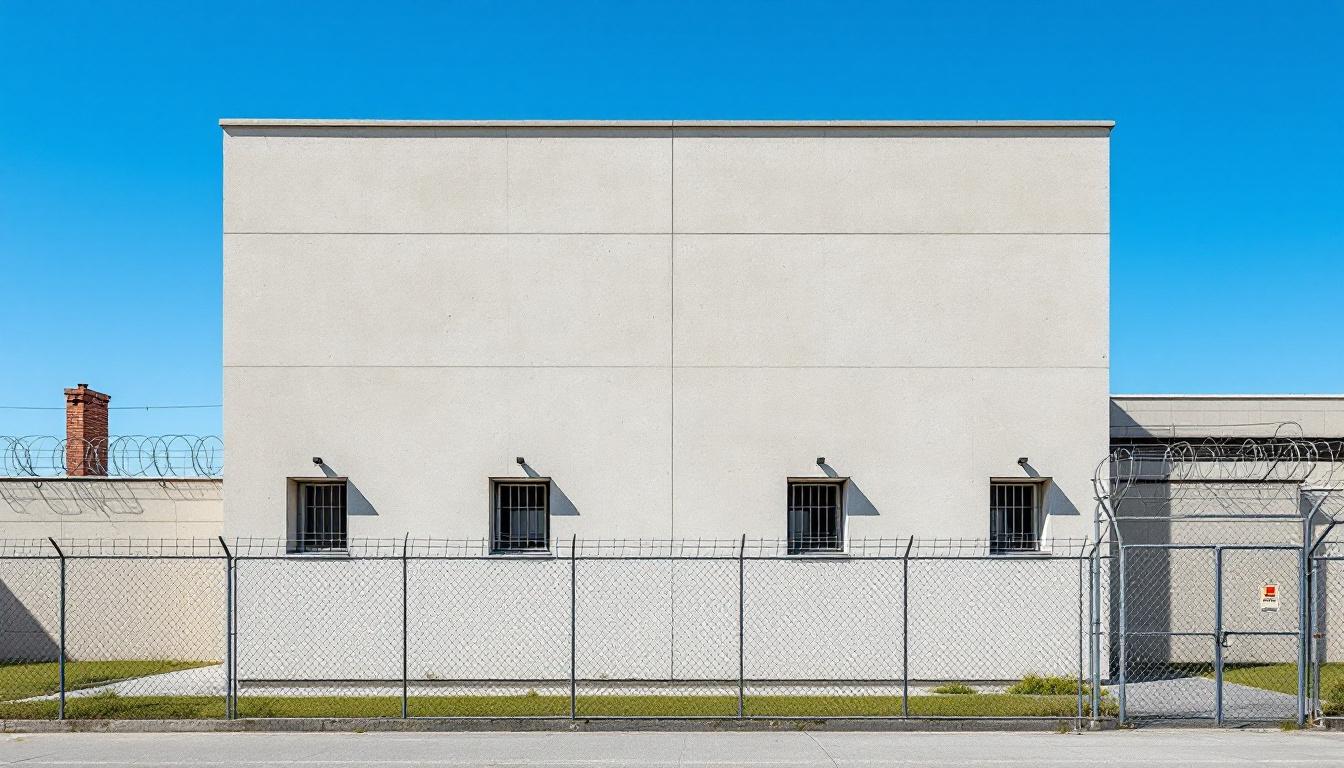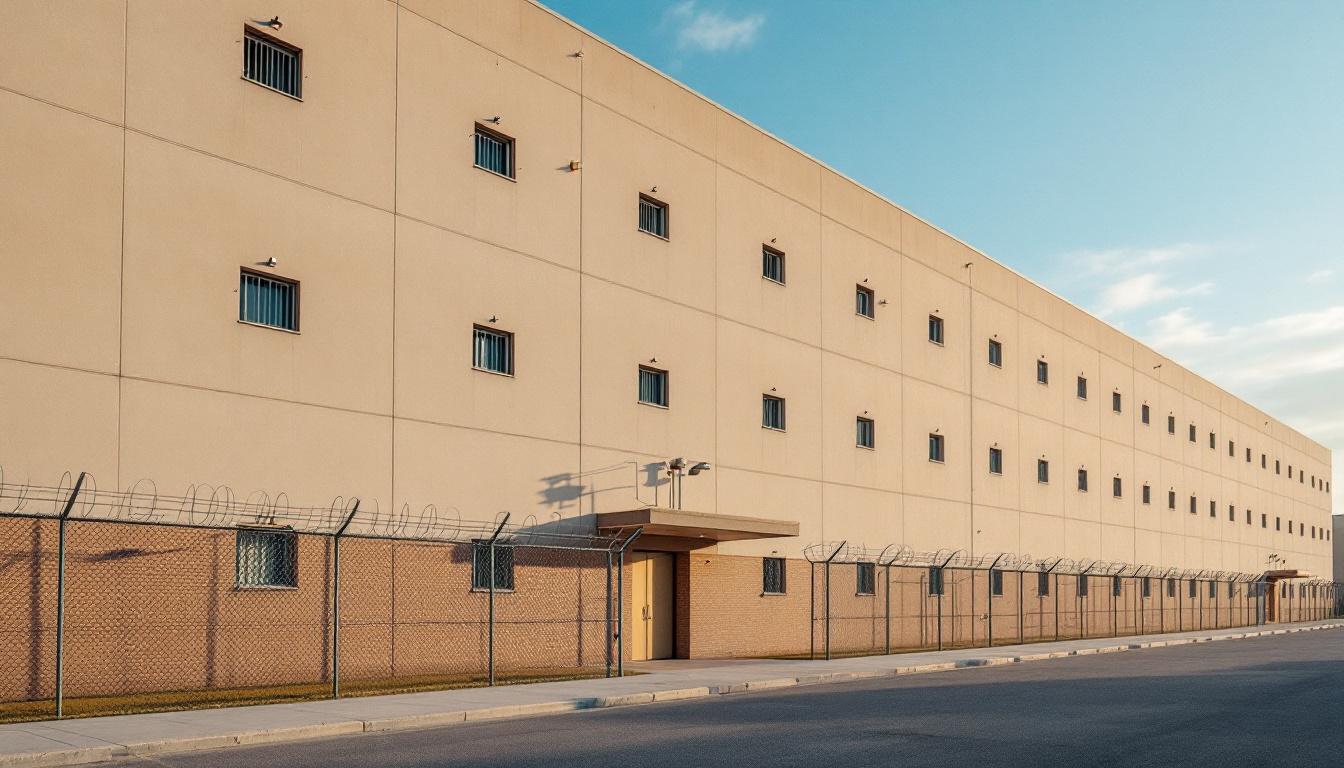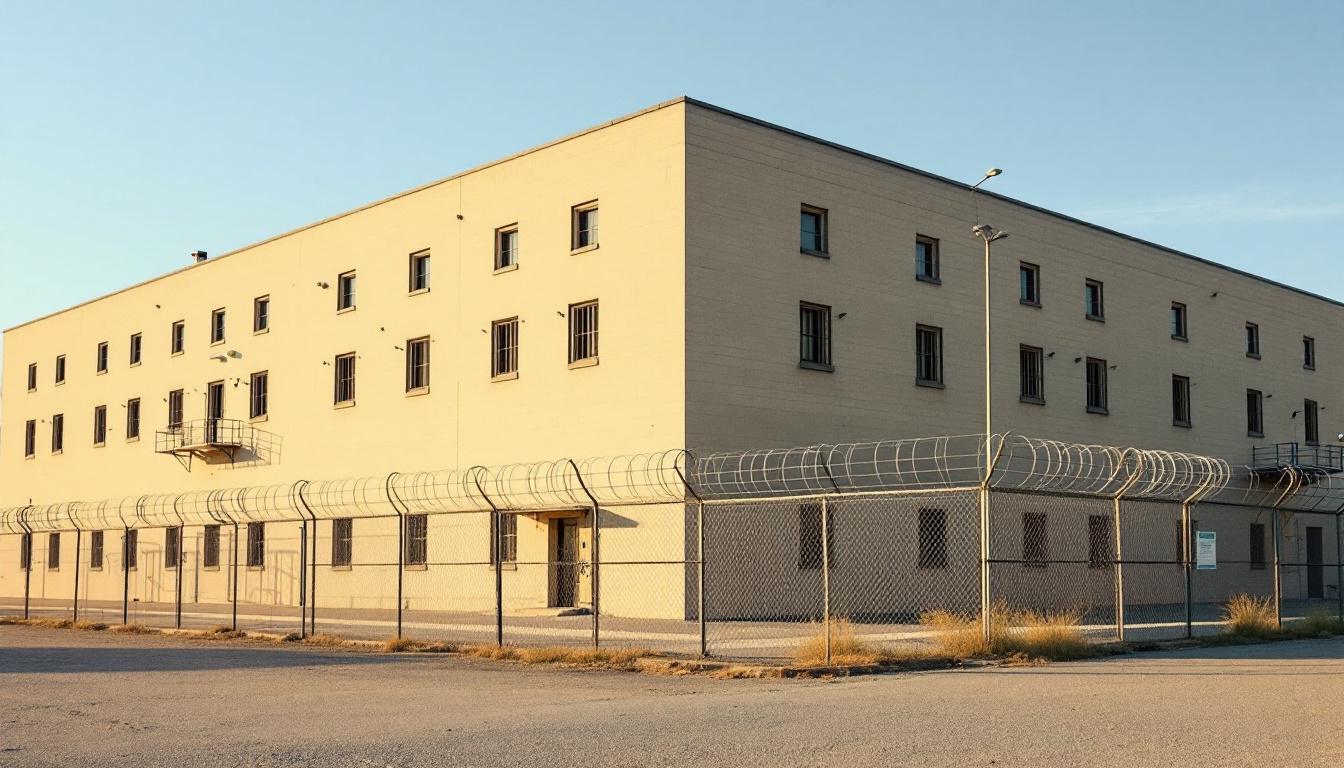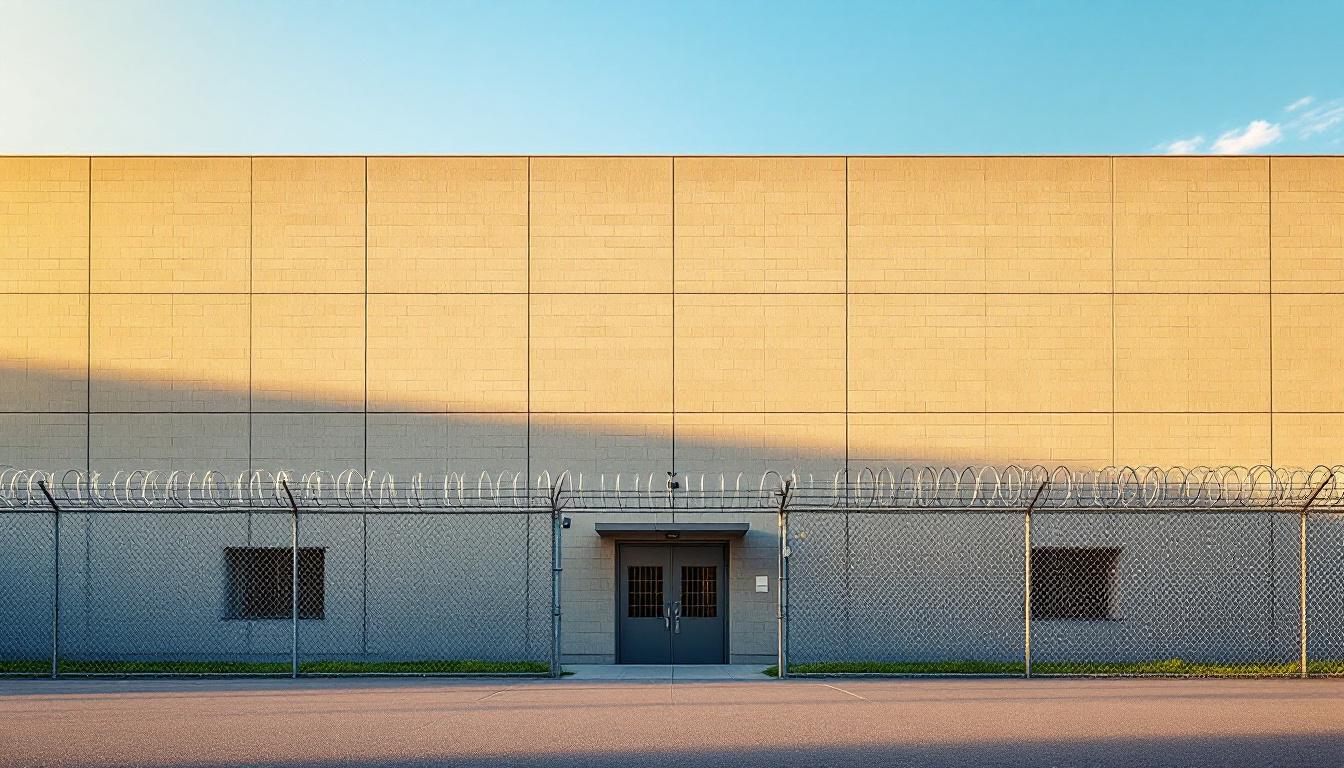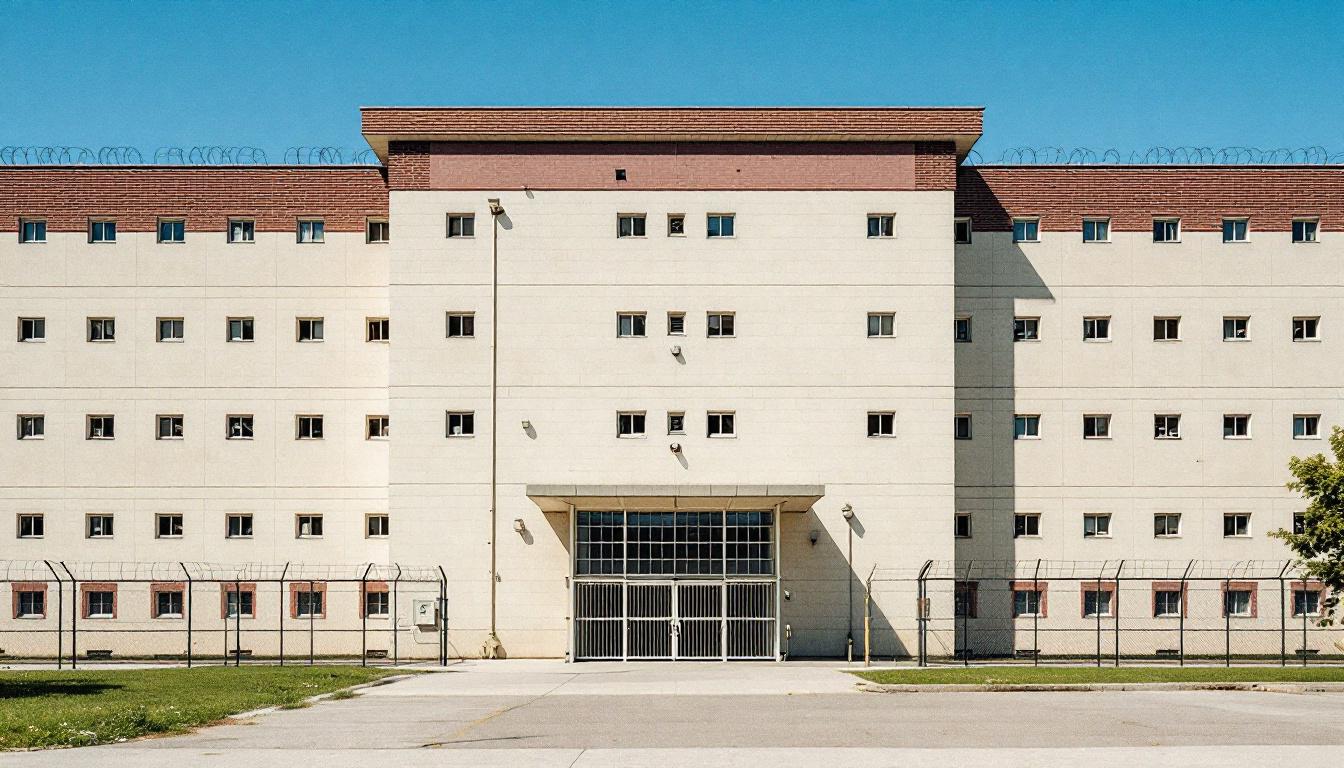
Quick Navigation
How to contact an inmate at Winnebago County Sheriff's Office
This comprehensive guide will walk you through how to connect with an inmate at Winnebago County Sheriff's Office. Follow the steps below to find an inmate and send letters and photos:
- Search for the inmate using our search tool below
- Create your account or log in to Penmate
- Write your message (up to 6,000 characters)
- Send instantly - inmates receive printed copies daily
Find an Inmate
Search for an inmate to start communicating today
Tip: You can search by first name, last name, or inmate ID number
To contact a person at Winnebago County Sheriff's Office start by searching for the person on the official facility website. Perform a search by following these steps:
- Step 1: Enter their first name and last name into the search form and click "Search"
- Step 2: Locate their inmate record
- Step 3: Write down their Inmate ID and any housing information provided
Important! Be sure to enter the person's full name. Nicknames should not be used.
How to Send Messages to Inmates

You can use your phone or computer to send emails, letters, and photos to an inmate. Messages are sent electronically to inmate tablets or kiosks at the facility. If you would like to send a message, start by searching for an inmate at Winnebago County Sheriff's Office.
Sending Photos and Postcards

A great way to send love and support to a loved one at Winnebago County Sheriff's Office is to send photos and postcards. It only takes a few minutes to send photos from your phone and it makes a huge difference. You can also mail postcards with words of support and inspiration, or design your own postcard for special moments like birthdays and holidays.
Important! Be sure not to send any explicit photos or they may not be approved by the facility. You can also use a photo printing app like Penmate to make sure your photos are printed at the correct size (4x6 or 3x5) and are mailed according to the rules and regulations of Winnebago County Sheriff's Office.
Frequently asked questions about Winnebago County Sheriff's Office
-
How long does it take to deliver a message?
If you're sending an email message your letter is usually delivered within 24-48 hours. For messages sent via mail you should expect delivery within 3-7 days. All messages will need be approved by Winnebago County Sheriff's Office.
-
How much does it cost to send a message to Winnebago County Sheriff's Office?
You can send a message free using your phone or mail a message via USPS for the price of a $0.60 stamp and envelope. You can also purchase credits or e-stamps from services starting at $1.99.
-
What services can I use to contact an inmate at Winnebago County Sheriff's Office?
Penmate
You can use Penmate to send letters and photos to an inmate from your phone. It's an easy way to stay in touch during your loved one's incarceration. Use the inmate locator to find an inmate's location and contact information, then you can send messages within a few minutes.
Securus messaging
Securus may be another option for communicating with an inmate at Winnebago County Sheriff's Office. You can create a friends and family account and purchase credits to send messages. All messages will be reviewed and must be approved by the facility.
JPay
Some county jails and state prisons may support sending messages with JPay. You must register an account with the system, find your loved one, and purchase stamps to send messages. For some locations you can also attach photos.
Smart Jail Mail
You may also check if Smart Jail Mail is available at Winnebago County Sheriff's Office. Smart Jail Mail is operated by Smart Communications and has contracted with some state and county jails. After purchasing credits, your messages and photos are sent to the facility, printed out, and then handed out to your loved one.
-
What is the mailing address of Winnebago County Sheriff's Office?
Mailing address:
Winnebago County Sheriff's Office
650 W State St
Rockford, IL 61102
Phone: (815) 319-6000Business hours:
- Monday: Open 24 hours
- Tuesday: Open 24 hours
- Wednesday: Open 24 hours
- Thursday: Open 24 hours
- Friday: Open 24 hours
- Saturday: Open 24 hours
- Sunday: Open 24 hours
-
What are the visiting hours at Winnebago County Sheriff's Office?
Visiting hours at Winnebago County Sheriff's Office vary by housing unit and security level. Generally, visits are scheduled on weekends and holidays, with some facilities offering weekday visits. Contact the facility directly at (815) 319-6000 or check their website for the current visiting schedule. Visits typically last 30-60 minutes and must be scheduled in advance.
-
What items are prohibited when sending mail to Winnebago County Sheriff's Office?
Prohibited items typically include: cash, personal checks, stamps, stickers, glitter, glue, tape, staples, paperclips, polaroid photos, musical or blank greeting cards, hardcover books, magazines with staples, and any items containing metal or electronics. Only send letters on plain white paper with blue or black ink. Photos must be printed on regular photo paper (no Polaroids). Always check with Winnebago County Sheriff's Office for their specific mail policies.
-
How do I send money to an inmate at Winnebago County Sheriff's Office?
You can send money to an inmate at Winnebago County Sheriff's Office through several methods: 1) Online using JPay, Access Corrections, or the facility's approved vendor, 2) Money orders mailed directly to the facility with the inmate's name and ID number, 3) Kiosks located in the facility lobby, or 4) Over the phone using a credit or debit card. Fees vary by method, typically ranging from $2.95 to $11.95 per transaction.
-
Can I schedule a video visit with an inmate at Winnebago County Sheriff's Office?
Many facilities now offer video visitation as an alternative to in-person visits. At Winnebago County Sheriff's Office, video visits may be available through services like Penmate, Securus Video Connect, GTL, or ICSolutions. Video visits typically cost $10-20 for 20-30 minutes and must be scheduled in advance. You'll need a computer or smartphone with a camera and reliable internet connection. Contact the facility for their specific video visitation policies and approved vendors.
-
What identification do I need to visit an inmate at Winnebago County Sheriff's Office?
All visitors must present valid government-issued photo identification such as a driver's license, state ID, passport, or military ID. Minors must be accompanied by a parent or legal guardian who can provide the minor's birth certificate. Some facilities require visitors to be on the inmate's approved visitation list, which may require a background check. Contact Winnebago County Sheriff's Office for specific ID requirements and visitor approval procedures.
-
How can I find out an inmate's release date?
To find an inmate's release date at Winnebago County Sheriff's Office, you can: 1) Use the online inmate search tool if available, 2) Call the facility's records department, 3) Contact the inmate's case manager or counselor, or 4) Have the inmate provide this information during a call or visit. For privacy reasons, some facilities only release this information to immediate family members.
Facility Overview
Contact Information
Winnebago County Sheriff's Office650 W State St
Rockford, IL 61102
Phone: (815) 319-6000
Official Website

About Winnebago County Sheriff's Office
Community safety and support converge at the heart of Phoenix, where Winnebago County Jail, IL serves as a cornerstone institution within the broader Illinois correctional framework. This county facility has evolved alongside the Phoenix area's growth, adapting its operations to meet the changing needs of residents while maintaining its fundamental commitment to public safety and offender accountability. The facility's location in Phoenix positions it strategically within Winnebago County's network of services, allowing for coordinated efforts with local law enforcement agencies and community organizations throughout the region.
Built to address the correctional needs of Winnebago County residents, this IL correctional facility typically houses individuals awaiting trial, serving shorter sentences, or participating in various county-supervised programs. The jail's approach to inmate services generally encompasses basic healthcare provisions, educational opportunities, and substance abuse programming, reflecting broader trends in midwest region correctional practices. Staff members often work to connect individuals with community resources that may support successful reintegration, recognizing that effective rehabilitation extends beyond the facility's walls into the Phoenix area's neighborhoods and support networks.
The facility's role within Illinois's correctional landscape emphasizes local accountability while providing pathways for positive change. Programs may include vocational training opportunities, mental health support services, and pre-release planning assistance designed to help individuals transition back into their communities successfully. Through collaboration with county departments and local service providers, the jail strives to balance public safety requirements with meaningful opportunities for personal growth and community healing throughout the Phoenix area and surrounding Winnebago County communities.
Programs & Services
Personal transformation through structured intervention forms the cornerstone of rehabilitative services at Winnebago County Jail, where inmates encounter opportunities designed to address underlying factors contributing to their incarceration. The facility's comprehensive approach recognizes that meaningful change requires addressing multiple dimensions of an individual's circumstances, from educational deficits to mental health challenges. Through carefully coordinated service delivery, the institution seeks to equip participants with practical skills and therapeutic insights that may facilitate successful community reintegration upon release.
Educational services typically encompass both foundational academic instruction and specialized programming tailored to individual learning needs. Inmates may access literacy development, GED preparation, and basic educational courses that address gaps in formal schooling. Also, special education services often provide targeted support for individuals with learning disabilities or developmental challenges, ensuring that cognitive barriers do not impede personal growth. Vocational programs complement these academic offerings by introducing practical job skills and trade-specific training that may enhance employment prospects following incarceration.
Support services extend beyond skill-building to address interpersonal and psychological dimensions of rehabilitation. Parenting classes may offer inmates opportunities to develop more effective child-rearing strategies and strengthen family relationships despite physical separation. Also, intramural sports provide structured recreational activities that promote physical wellness while fostering teamwork and positive social interaction among participants. Mental health treatment services typically address underlying psychological issues through individual counseling and group therapy sessions, recognizing that emotional stability often proves essential for sustained behavioral change and successful community reintegration.
Daily Life & Visitation
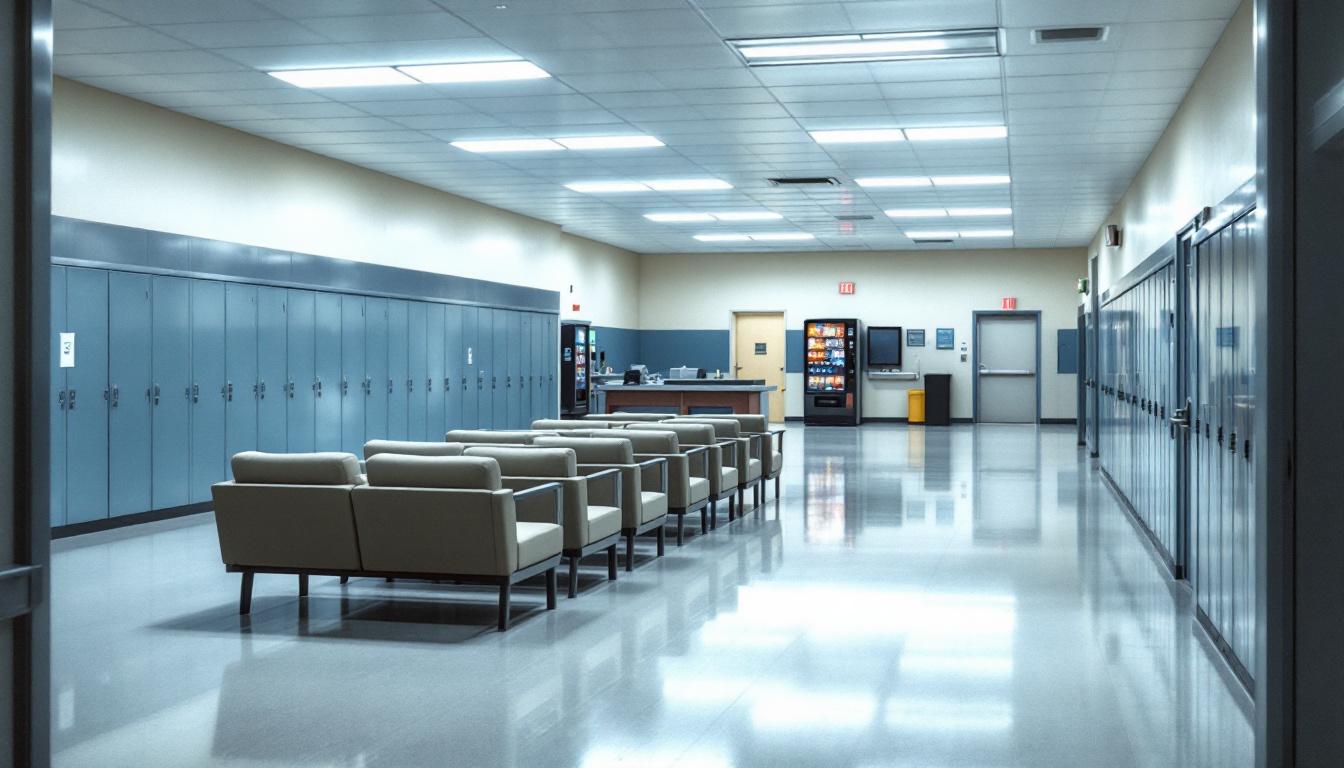
The concrete walls and fluorescent lighting of the housing units create a controlled environment where inmates at Winnebago County Jail must quickly learn to navigate structured routines and shared living spaces. At present, the facility actively maintains a regimented schedule that typically begins with early morning counts and extends through evening lockdown procedures, providing inmates with predictable daily rhythms that many find essential for maintaining stability during their incarceration.
Living accommodations generally consist of multi-occupancy cells or dormitory-style housing units, where inmates share sleeping quarters with one or more individuals and must adapt to limited personal space and storage options. The dining arrangements typically involve scheduled meal times in common areas, where inmates receive standardized portions and learn to appreciate the social aspects of communal eating, while commissary privileges may allow for supplemental snacks and personal items that provide small comforts in an otherwise austere environment. However, the adjustment to institutional food and restricted personal belongings often requires significant adaptation for those accustomed to independent living.
Also important to daily life are the various programs and activities that provide structure and purpose, including work assignments within the facility that may involve kitchen duties, cleaning responsibilities, or maintenance tasks that help inmates contribute to the facility's operations. Recreation opportunities typically include scheduled time in common areas or outdoor spaces when available, while visitation policies generally allow for regular contact with family members through in-person visits or video calling systems. However, these connections to the outside world, though vital for maintaining relationships and emotional well-being, operate within strict scheduling parameters that inmates must learn to navigate as part of their adaptation to institutional life.
Ready to Connect?
Start communicating with your loved one today
Search for an Inmate

